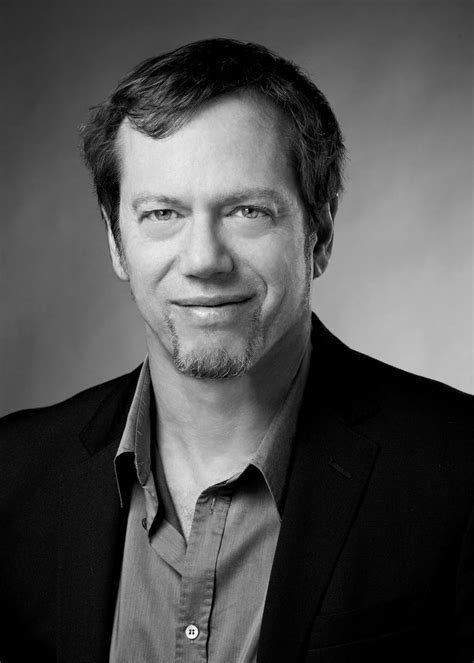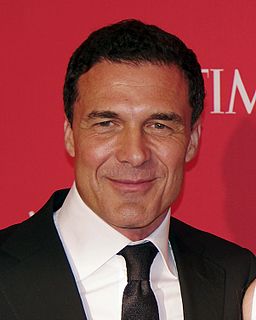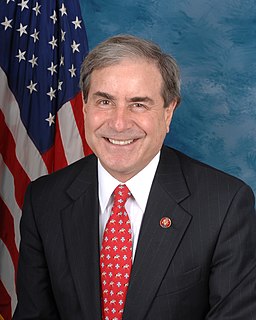Top 1200 Goods Quotes & Sayings - Page 20
Explore popular Goods quotes.
Last updated on November 25, 2024.
Capital does not 'beget profit' as Marx thought. The capital goods as such are dead things that in themselves do not accomplish anything. If they are utilized according to a good idea, profit results. If they are utilized according to a mistaken idea, no profit or losses result. It is the entrepreneurial decision that creates either profit or loss.
Anybody who can afford a box of business cards can afford a Web site. Any company with an 800 number can move its services to the Web for peanuts by comparison. The extreme case of corporate promotion is to strip away all other aspects of your business and sell goods or services via the Net alone, as amazon.com has done with books.
Sexuality is important, but it's certainly not the most interesting or important thing happening to you right now. We live in a world that tells us that there are only two important things. One is the acquisition of goods and the other is either the acquisition or avoidance of sex, but it turns out that the question of who's a virgin and who's a virgout is not the most interesting question.
There is no such thing as agflation. Rising commodity prices, or increases in any prices, do not cause inflation. Inflation is what causes prices to rise. Of course, in market economies, prices for individual goods and services rise and fall based on changes in supply and demand, but it is only through inflation that prices rise in aggregate.
For years now I have run a kitchen-sink punk salon in my house, called Salon du Gay. In the early days, people would pay for a riot grrrl bob or a passable bleach job with a mixtape, $3 or a selection of baked goods - whichever they could afford. More recently though, with Gossip doing well, I've performed these punk hair transformations for free.
Capital movements are no longer necessarily related to the production of goods and services. Through the financial markets of the world, capital movements today are overwhelmingly concerned with the capture of and trade in property rights, the ownership of assets that magnify a corporation's wealth, power, and control. It is what John Maynard Keynes described as "a casino world"-wealth without worth.
With its array of gadgets and machines, all powered by energies that are destructive of land or air or water, and connected to work, market, school, recreation, etc., by gasoline engines, the modern home is a veritable factory of waste and destruction. It is the mainstay of the economy of money. But within the economies of energy and nature, it is a catastrophe. It takes in the world's goods and converts them into garbage, sewage, and noxious fumes-for none of which have we found a use.
Peeta smiles and douses Haymitch's knife in white liquor from a bottle on the floor. He wipes the blade clean on his shirt tail and slices the bread. Peeta keeps all of us in fresh baked goods. I hunt. He bakes. Haymitch drinks. We have our own ways to stay busy, to keep thought of our time as contestants in the Hunger Games at bay.
I have done business in China for 25 years, so I know that in order to get China to cooperate with us, we must first actually retaliate against their cyber-attacks so they know we're serious. We have to push back on their desire to control the trade route through the South China Sea through which flows $5 trillion worth of goods and services every year.
We were not foolish enough to try to make a currency [backed by] gold of which we had none, but for every mark that was issued we required the equivalent of a mark's worth of work done or goods produced ... we laugh at the time our national financiers held the view that the value of a currency is regulated by the gold and securities lying in the vaults of a state bank.
One is left with the thought that given the way we now abuse the ocean and abuse the climate that we are heading towards our own iceberg, which is looming on the horizon. It's not visible yet but it certainly exists there and it won't be my generation that has to deal with the fact that the world is not bountiful forever, that the ocean and the atmosphere are not free goods to be abused, that will have to feed these vast populations. That will be your generation.
The strongest argument for free enterprise is that it prevents anybody from having too much power. Whether that person is a government official, a trade union official, or a business executive. If forces them to put up or shut up. They either have to deliver the goods, produce something that people are willing to pay for, are willing to buy, or else they have to go into a different business.
Our countries are weaker: they cannot protect us from imported goods, they can't protect us from climate change, they cannot protect us from epidemics. These things cross borders. But the kind of cooperation that would protect us from those things was completely lacking and because of this there's been a backlash. People feel vulnerable.
Any fool can make a quilt; and, after we had made a couple of dozen over twenty years ago, we quit the business with a conviction that nobody but a fool would spend so much time in cutting bits of dry goods into yet small bits and sewing them together again, just for the sake of making believe that they were busy at practical work.
Tobacco, divine, rare, superexcellent tobacco, which goes far beyond all the panaceas, potable gold, and philosophers stones, a sovereign remedy to all diseases but as it is commonly abused by most men, which take it as tinkers do ale, 'Tis a plague, a mischief, a violent purger of goods, lands, health; hellish, devilish and damned tobacco, the ruin and overthrow of body and soul.
The goal of socialism is a fairer allocation of economic resources, which its advocates often claim will also be a less wasteful one. Socialism is about who gets the goods and how. Socialism objects to markets because markets allocate resources in ways socialists believe to be unfair on both counts: both the who and the how.
It was with the Industrial Revolution, as society plunged ever more eagerly into the conquest of material riches and bent all its energies to the accumulation of goods, that material poverty became a major problem. Obviously, this meant abandonment or downgrading of spiritual values, virtue, etc. To share or not to share in the increase of the collective wealth-this was the Number One question. It was the desire to acquire wealth that prompted the poor to start fighting.
All of the progress that the US has made over the last couple of centuries has come from unemployment. It has come from figuring out how to produce more goods with fewer workers, thereby releasing labor to be more productive in other areas. It has never come about through permanent unemployment, but temporary unemployment, in the process of shifting people from one area to another.
Churches are tax exempt because they are supposed to provide a public good. To prove that good to the IRS, churches arent supposed to hoard their money. They are supposed to spend it on goods and services for the faithful. Under this pretense, the church has made massive investments in tax free real estate all over the world. And when it comes to labor costs, they are almost free.
What we are entering is a power age, and the importance of the power age lies in its ability, rightly used with the wage motive behind it, to increase and cheapen production so that all of us may have more of this world's goods. The way to liberty, the way to equality of opportunity, the way from empty phrases to actualities, lies through power
If one looks into the genealogies of many 'old families,' one discovers episodes of slave trafficking, bootlegging, gun running, opium trading, falsified land claims, violent acquisition of water and mineral rights, the extermination of indigenous peoples, sales of shoddy and unsafe goods, public funds used for private speculations, crooked deals in government bonds and vouchers, and payoffs for political favors.
It's still popular to ... insist that globalization is a rising tide that lifts all boats, but the hard reality is that the last thirty years have seen America's once proud and prosperous working class thrown to the wolves, so corporations could keep boosting their quarterly profits and the middle class could maintain a filmy illusion of wealth through access to cheap consumer goods.
Somebody's buying these treasury bills at 1/20th of one percent. Consuming about $2 billion a day of goods and services beyond what we're producing. In other words, the rest of the world sends about $2 billion a day net of something.We got to send them something in return, don't we. So we send them little pieces of paper.
We live in a world ruled by fictions of every kind - mass merchandising, advertising, politics conducted as a branch of advertising, the instant translation of science and technology into popular imagery, the increasing blurring and intermingling of identities within the realm of consumer goods, the preempting of any free or original imaginative response to experience by the television screen. We live inside an enormous novel.
Striving for longevity through versatility facilitates what we might call an ecological or true materialism. ... we are not truly materialist because we fail to invest deep or sacred meanings in material goods. Instead, our materialism connotes an unbounded desire to acquire followed by a throwaway mentality. True materialism could become part of a new ecological consciousness.
[A] private property regime makes people responsible for their own actions in the realm of material goods. Such a system therefore ensures that people experience the consequences of their own acts. Property sets up fences, but it also surrounds us with mirrors, reflecting back upon us the consequences of our own behavior.
People have to pay so much money to the banks that they don't have enough money to buy the goods and services they produce. So there's not much new investment, there's not new employment (except minimum-wage "service" jobs), markets are shrinking, and people are defaulting. So many companies can't pay their banks.
I took it for granted that there must be a few men left in the world who had that kind of strength. I assumed that those men would also be looking for women with principle. I did not want to be among the marked-down goods on the bargain table, cheap because they’d been pawed over. Crowds collect there. It is only the few who will pay full price. "You get what you pay for.
The charitable say in effect, 'I seem to have more than I need and you seem to have less than you need. I would like to share my excess with you.' Fine, if my excess is tangible, money or goods, and fine if not, for I learned that to be charitable with gestures and words can bring enormous joy and repair injured feelings.
You know, the elites always want to shame the poor - right? - and everyone else. I mean, the fact is, this economy is based on 70 percent of the people driving consumer demand. If people do not purchase goods and services, this economy will grind to recession. And that is why, if you are going to do a tax cut, it ought to really be aimed at low-income and middle-income people.
It is not for man to seek, or even to believe in, God.
He only has to refuse his ultimate love to everything that is not God.
This refusal does not presuppose any belief.
It is enough to recognize what is obvious to any mind:
that all the goods of this world, past, present, and future, real or imaginary,
are finite and limited and radically incapable of satisfying
the desire that perpetually burns within us
for an infinite and perfect good.
Small wonder our national spirit is husk empty. We have more information but less knowledge. More communication but less community. More goods but less goodwill. More of virtually everything save that which the human spirit requires. So distracted have we become sating this new need or that material appetite, we hardly noticed the departure of happiness
It is clear that the main tenet of socialism, community of goods, must be utterly rejected, since it only injures those whom it would seem meant to benefit, is directly contrary to the natural rights of mankind, and would introduce confusion and disorder into the commonweal. The first and most fundamental principle, therefore, if one would undertake to alleviate the condition of the masses, must be the inviolability of private property.
In the 20th century, we built a lot of walls - we endlessly tried to build walls between us and people we perceived, correctly or incorrect, as our enemies. In the 21st century, because of the advent of networks, the free movement of goods and people across the globe, we need to build security by building bridges instead of building walls.
Though editorialists at The New York Times and The Washington Post still don't get it, most Democrats in Congress finally do: Today's trade disputes are no longer mostly about tariffs, quotas, or free entry of goods. They are about the ground rules for capitalism. Are there to be only property rights? What about the other rights that liberal democracies have fought for since the 1880s?
The first essential responsibility of the state is control of the market-place: there must be some official charged with the duty of seeing that honest dealing and good order prevail. For one of the well-nigh essential activities of all states is the buying and selling of goods to meet their mutual basic needs; this is the quickest way to self-sufficiency, which seems to be what moves men to combine under a single constitution.
When we seek happiness through accumulation, either outside of ourselves-from other people, relationships, or material goods-or from our own self-development, we are missing the essential point. In either case we are trying to find completion. But according to Buddhism, such a strategy is doomed. Completion comes not from adding another piece to ourselves but from surrendering our ideas of perfection.
I'm never gonna owe money because every time I get a dollar, I put it into another business, whether it's to buy goods or develop other companies. You don't have money; you have companies. That's one business model. That's mine. And I only associate with other people that are putting up their own money, 'cause they're the only ones that can relate.
When we strengthen our relations with the Gulf states, when we cooperate with the Arabs, everybody asks if we are looking for a new geopolitical place. But in the Middle East and the Gulf, you can find German, French and British goods everywhere. German relations to these states are very good, as are English and French relations. Does this make them Arab-oriented?
Most companies want free enterprise in general because that produces better goods and services and makes people's lives better, but they don't want it in their business. They want protection from competition, they want subsidies, they want the government to pick winners and losers, and they want to be picked as winners, and that's what we're opposing, and that's what drives my whole efforts in policy, and in the political arena.
In effective, sustained citizen action, people learn the skills of public life with which to act effectively. "Commons," or the common wealth-the public goods that are objects of sustainable public action-become not only occasions for collaboration by invaluable sources of citizen education in their own right because they are the occasions for learning such skills.
Over the span of man's history, although a phenomenal amount of education, persuasion, indoctrination and incantation have been devoted to the effort, ordinary people have never been quite persuaded that toil is as agreeable as its alternatives. Thus to take increased well-being partly in the form of more goods and partly in the form of more leisure is unquestionably rational.
You have plenty of liberals out there who are all for the cops raiding their political enemies, they're all for the cops doing whatever they have to do to get whatever goods they want on their political enemies. And yet the Patriot Act comes, oh, you can't do it, it's an invasion of privacy. And yet in some cases they don't care about other people's privacy. Privacy is irrelevant to them depending on what the target is.
Don’t flirt, have sex, or engage in emotional affairs with your friends’ significant others. This shouldn’t need to be said, but it needs to be said. That significant other is an asshole, and you don’t want to be involved with an asshole who’s used goods. If you want to be with an asshole, get a fresh asshole of your very own. They are abundant.
I don't think it ever does any harm in any business to feel that there is someone there who cares about it. If you look at any business, fashion being the most obvious, the aura, or the reality of the designer, is part of what creates it. It's true in luxury goods stores and in good food stores. It leaves a palpable sense that someone cares.
Good farmers, who take seriously their duties as stewards of Creation and of their land's inheritors, contribute to the welfare of society in more ways than society usually acknowledges, or even knows. These farmers produce valuable goods, of course; but they also conserve soil, they conserve water, they conserve wildlife, they conserve open space, they conserve scenery.
Generally, we have translated greater output in the few hours of work per week over the last century. And that's a good trend of the future. But we do have to have a system that, as output of goods and services keeps increasing per capita, that it takes care of the people who are willing to work and really are not getting by very well with a family on a 40-hour week.
How you make it in this world, for the most part, depends more on what you do as opposed to whether people like or dislike you. In order to produce a successful life, one must find ways to please his fellow man. That is, find out what goods and services his fellow man values, and is willing to pay for, and then acquire the necessary skills and education to provide it.
Federal assistance helps millions of Americans escape poverty every year by providing the stability needed to take advantage of new opportunities. In fact, it is our safety net that allows full participation in the economy. More Americans purchasing goods means more Americans making them, which means more American jobs.
What a man does, that he has. What has he to do with hope or fear? In himself is his might. Let him regard no good as solid but that which is in his nature, and which must grow out of him as long as he exists. The goods of fortune may come and go like summer leaves; let him scatter them on every wind as the momentary signs of his infinite productiveness.
























































